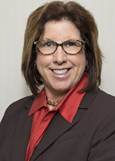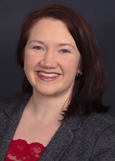How to Build Your Professional Brand

Whether you’re on the job hunt, several years into your career or anticipating retiring soon, professional branding is important.
In this day and age, social media reigns and individuals who take a proactive approach to defining who they are professionally – both online and offline – better position themselves as true business experts. Your brand is your reputation, so who better than you to manage it?
Fortunately, when it comes to professional branding, experts agree that it’s never too late to start.
Become the Expert

David Suescun, who has more than eight years of oil and gas experience working for both Schlumberger Ltd. and Weatherford, began studying branding four years ago and has since implemented several branding strategies.
After identifying your niche and what makes you stand out from the crowd, Suescun said it’s important to work on your social media footprint.
“Make sure you’re consistent on all of your social media profiles by using the same picture, portraying the same message and writing tone and start connecting to the types of people you want to have as an audience by sharing content that will be useful to them,” Suescun told Rigzone. “Growing your brand is about providing value rather than asking for something. If you add value to other people, they are going to want to be involved with you.”
Suescun also utilized the help of free online courses offered by Coursera to help in his professional branding.
Though Suescun regrets not starting his professional branding sooner so that it could have grown more organically, he maintains “the best time to start branding is whenever you start – and it’s always a good time to start.”

Nancy Marshall, CEO of Nancy Marshall Communications – a public relations and marketing agency for tourism, economic development, energy and educational institutions – advises individuals to build a LinkedIn profile with a summary that includes their personal brand manifesto (essentially, a person’s story, including their background and education, personal beliefs, values and mission).
“Your profile should have a smiling head shot where people can look into your eyes and think, ‘that’s someone I would like to meet,’ and even better, ‘that’s someone I’d like to do business with,’” Marshall told Rigzone. “You are known by the company you keep, so connect with influential people whose networks will help raise your profile.”
Additionally, Marshall said individuals should write articles and columns for industry trade publications.
“Subscribe to several trade publications in the energy field and look for articles that are submitted by executives in the industry,” she said. “Then contact the editor and pitch an idea on something you would like to write about that will help position you as an industry expert. The idea is to get your name in print as an expert in a certain field.”
Strategic use of Twitter can also allow people to be viewed as experts, said Marshall.
“It’s important to have a Twitter handle where you can tweet interesting things you learn about your industry on a day-to-day basis,” she said. “Twitter is an ideal place to position yourself as an industry expert and using [relevant] hashtags such as #naturalgas, #energy, and #cleanenergy, will place you among other thought leaders in the industry.”
Get Active

Shaun Walker, cofounder and creative director for HEROfarm, an advertising and public relations firm in New Orleans, said everyone has a personal brand, whether they realize it or not.
“Branding is all about forming a unique, consistent perception in the mind of people,” Walker told Rigzone. “Decide how you want to be perceived and begin moving in that direction in all ways possible.”
Walker shared one of the best things someone in the early stages of their career can do is to get with other like-minded individuals and network.
“A key to branding is to be as active as possible – join professional groups and boards, attend events, donate time to charities, give guest lectures and presentations – make it seem like you’re everywhere at all times,” Walker told Rigzone. “The more people see you associate with something, the more they will associate you with it and begin to assume you are an authority or leader in that industry or area.”
Walker shared in an age of social media and digital content, an innovative strategy to branding is turning it on its head.
“When everyone else is going right, go left. Try the real world – handwritten letters, talking face-to-face, thank-you notes, printed pictures, tangible objects, etc. – all old school tactics that break through the clutter,” he said. “There’s a saying that everything old is new again, so why not try to beat everyone else to the punch? Get noticed while everyone else seemingly focuses on the digital world.”
While Walker maintains that social media has become an integral part of our lives and can be great for personal branding, it can also do immense damage to all a person has worked to build.
“You do not need to be on every social media channel … create profiles on ones you find most comfortable and concentrate on that,” he said.
Marshall added, another way to get active with your brand is to seek out opportunities to speak at industry conferences and local business gatherings.
“Get comfortable speaking in public, and you will find that more invitations to speak will come your way,” she said. “Make sure to post photos about your speaking engagements on your social media channels.”
Professional Branding for Women
For women in energy, a demographic that is certainly underrepresented, branding can be all the more important.
“Women need to be bold to compete in a male-dominated field such as energy or natural gas. They still need to work harder and they need to have iron-clad confidence,” Marshall said. “Establishing a personal brand may be even more important for women than men because everywhere you turn, men will be judging women, and if you are known in the industry for having expertise and for being well-connected, then you are more likely to be respected.”

Suz Graf O’Donnell, personal branding strategist and executive coach, gave two keys for women in branding, though she said they may sound contradictory:
- Forget you are a woman: “You can do anything, so don’t shy away from challenging, male-dominated roles.”
- Remember you are a woman: “Unfortunately, in male-dominated fields, you have to work a little harder to make sure the men notice and remember your unique talents and business skills. People tend to want to be around people who are like them, and it’s going to be a while before we have a 50/50 scene in energy leadership, so in the meantime, be sure you live and breathe your leadership brand every day so that they will take note and you will get what you want out of your career.”
Managing Your Brand is Key
Just as important as developing your brand is making sure you maintain it throughout your career. People should take ownership of their brand and keep it top of mind.
“Sometimes, people avoid the topic of personal branding because to them, it sounds like sales or marketing. They may say, ‘I’m an engineer.’ They feel like branding doesn’t apply to them,” O’Donnell said. “Your personal brand is how people view you and how you portray your success and vision and get your career going in the direction you want it to go.”
People should continually update their brand over time.
“It’s not a one and done thing. You should think about your brand from time to time to make sure you’re going down the path you want,” she said.

Rahna Barthelmess, president of Beacon Marketing, stressed the importance of promoting your own achievements.
“A lot of people fall into the trap of thinking their boss knows what they are contributing, so they don’t have to take an active part in promoting their brand – the whole ‘I’m going to sit in my cubicle and do my work and that will be enough’ attitude isn’t going to cut it,” Barthelmess told Rigzone. “Be your own PR agent and best advocate. Find ways to get exposure in whatever it is you want to be known for: give presentations, contribute to your company blog, mentor others or find other ways to shine a spotlight on the unique contributions you give within the industry.”
Additionally, Barthelmess said it’s important to manage the growth of your brand, because just like people, it evolves and changes over time.
This includes during times of cost-cutting and layoffs, which the oil and gas industry is currently experiencing.
“One of the key things I think is important is to have confidence. When you’re young, you don’t have confidence because you know you don’t have experience, but you need to have confidence that what you contribute is important,” Barthelmess said. “If you’ve been laid off, that really does a number on your confidence because you can take it personally and may feel that someone is saying you’re irrelevant or that you don’t matter anymore.”
However, it is times like these that a person’s branding can come full circle, said Barthelmess. Some of the same questions you ask yourself when you first graduate college or enter the workforce (e.g. What type of career do I want? How am I unique?) are the same questions you would ask yourself again.
“Take time to reassess and determine your goals. Being in your 40s or 50s is not too late. Regroup and re-identify your brand,” she said. “What are you good at? What do you uniquely bring to an organization? Often times, you’ll have to reinvent yourself. If the industry has updated, refreshed and changed, and you haven’t, you may need to take a class, do some reading or network to make sure you stay up-to-date.”
And Barthelmess warns that a person should never sabotage themselves by focusing on their weaknesses.
“Do you think McDonald’s sits around worrying that their food is unhealthy? No! Instead, they’re saying, ‘we have awesome fries!’ That’s what we should do,” she said. “In branding, don’t focus on your weaknesses; focus on your strengths because that’s where your advancements will be found.”
Regardless of when an individual begins developing their professional brand, their brand is something that will remain with them throughout their lives. It’s important to manage it actively and purposefully.
WHAT DO YOU THINK?
Generated by readers, the comments included herein do not reflect the views and opinions of Rigzone. All comments are subject to editorial review. Off-topic, inappropriate or insulting comments will be removed.
- USA Regional Banks Dramatically Step Up Loans to Oil and Gas
- An Already Bad Situation in the Red Sea Just Got Worse
- Oil Markets Were Already Positioned for Iran Attack
- Valeura Makes Three Oil Discoveries Offshore Thailand
- EU Offers $900MM in Funding for Energy Infrastructure Projects
- Germany to Provide $2.3B Aid for Decarbonization of Industrial Sectors
- North America Breaks Rig Loss Streak
- Chile's ENAP Says Working on Decarbonization Plan
- Mexico Presidential Frontrunner Plans to Spend Billions on RE, Gas Power
- ExxonMobil French Unit to Sell Refinery to Entara-Trafigura Consortium
- Macquarie Strategists Warn of Large Oil Price Correction
- JPMorgan CEO Says LNG Projects Delayed Mainly for Political Reasons
- USA, Venezuela Secretly Meet in Mexico as Oil Sanctions Deadline Nears
- EIA Ups Brent Oil Price Forecast for 2024 and 2025
- Petrobras Discovers Oil in Potiguar Basin
- EIR Says Oil Demand Will Not Peak Before 2030
- Biden Plans Sweeping Effort to Block Arctic Oil Drilling
- Pantheon Upgrades Kodiak Estimates to 1.2 Billion Barrels
- Dryad Flags Red Sea 'Electronic Warfare' Alert
- USA Crude Oil Stocks Rise Almost 6MM Barrels WoW
- Oil and Gas Executives Predict WTI Oil Price
- New China Climate Chief Says Fossil Fuels Must Keep a Role
- Chinese Mega Company Makes Another Major Oilfield Discovery
- Oil and Gas Execs Reveal Where They See Henry Hub Price Heading
- Equinor Makes Discovery in North Sea
- ExxonMobil Racks Up Discoveries in Guyana Block Eyed by Chevron
- Macquarie Strategists Warn of Large Oil Price Correction
- DOI Announces Proposal for Second GOM Offshore Wind Auction
- Standard Chartered Reiterates $94 Brent Call
- Chevron, Hess Confident Embattled Merger Will Close Mid-2024






